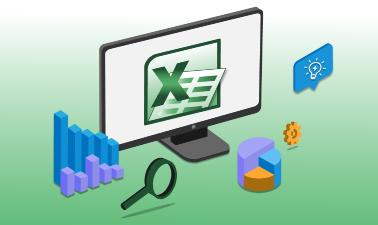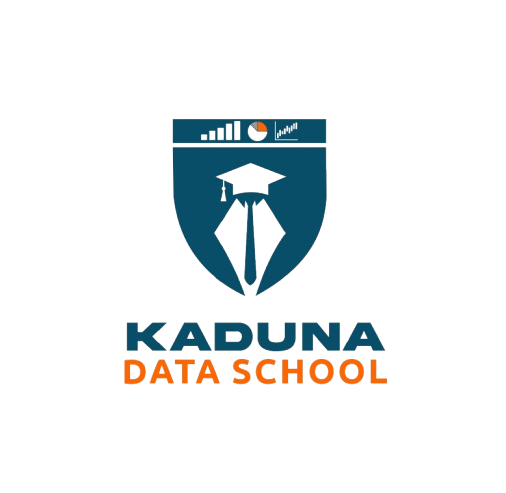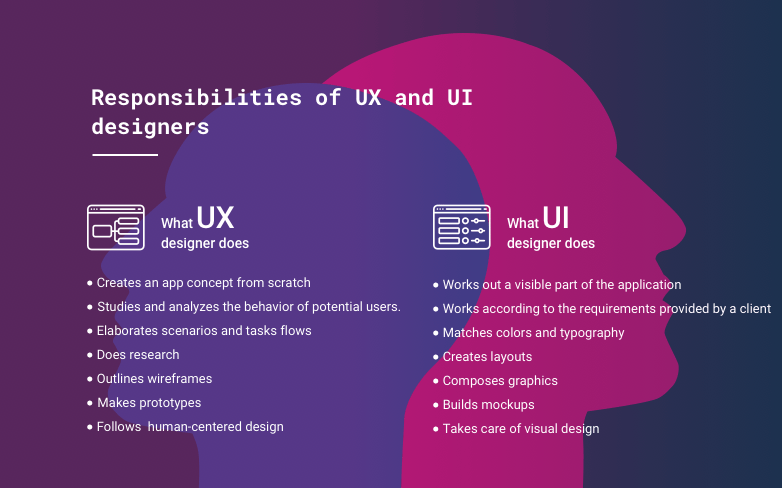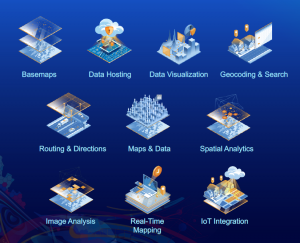What is Data Analysis?
Data Analysis is the process of applying statistical tools and logics to access and examine data and make deductions from it. Data analysis is the science of examining a set of data to extract information from it and make conclusions about the information and in turn expand the knowledge on various subjects concerning it. Data analysis as well involves transformation of data into usable forms, from which several information can be collected and used for respective functions. The data analysis training in Kaduna Data School will be taking you through all that has to do with data analysis, all that will help you excel in the field.
Importance of Data Analysis
Technology is fast changing how businesses operate nowadays, and data analysis is going to have a significant impact on how you use technology to run your business. More companies and businesses tend to be more successful when data analysis gives them a heads up on all the information they need to know to improve their visibility (data visualization), business intelligence, it can help those businesses to increase their traffic.
With data analysis, you will be able to make decisions on customer trends and behavior prediction, increasing business profitability, and drive effective decision-making. Once you adopt a data analysis method in your business, you can analyze the causes of particular events based on the data, analyze data visualization, understand the objectives and directives for your business, and you will have technical insights of the business.
Using data analysis, you can determine what forms of advertisements reach your customers effectively and make an impact that will make them buy your products.
There is no activity that data analysis does better than checking the performance of your products or business in the market. Once you understand what products are suitable for what clients, you can determine the areas that you are going to focus on and for which customers.
Data analysis also gives you a rough idea of the future trends in consumer behaviour that will enable you to make futuristic inventions on your products. This way, you can produce products and create services that can put you on top of your industry. With these innovations, you can maintain a sharp edge advantage over your competitors.
Career Prospects of a Data Analyst

The data analysis training in Kaduna Data School will help you go through some of the career prospects of a data analyst. Some of the key job options that one can explore in the field are:
Data Scientist: Data Scientists collect and analyze data that can be communicated as actionable insights.
Data Engineer: A Data Engineer often focuses on massive data sets and is tasked with optimizing the organization’s infrastructure around several Data Analytics processes.
Machine Learning Engineer: Machine Learning Engineering is an advanced Data Analytics career path that combines the expertise of Data Science and Machine Learning/Artificial Intelligence
Data Journalist: Data Journalists who are primarily the ones finding data, distinguishing the useful data from the bad, and analyzing it for simplicity.
Database Admin: Database Admins monitor and optimize performance and implement, configure, and troubleshoot database instances to ensure optimal health of the environment.
Financial Analyst: Financial Analysts are Data Analysts who bring Finance domain expertise and use the various insights to interpret it
Business Analyst: A Business Analyst has to have expertise in the chosen domain and is tasked with testing, updating, installing, and maintaining the business process systems for the organization, which includes data processing and other tools.
Product Analyst: a Product Analyst is responsible for managing product-related processes like planning, analyzing existing or new products, and ensuring proper working of the products used within the organization.
Data System Developer: They help to design, build, and maintain an organization’s data and analytics infrastructure and also facilitate the process for Data Scientists, Analysts, and other Developers.
Data Analysis Tools

Python for Data Analysis
Python in data analysis is used for importation of data from multiple sources, how to perform some fundamental data manipulation tasks, that together, form the pre-processing phase of data analysis. These tasks include handling missing values in data, formatting data to standardize it and make it consistent, normalizing data, and grouping data values. The Kaduna Data School will also teach about performing computations on the data to calculate basic descriptive statistical information, such as mean, median, mode, and quartile values. The data analysis training in Kaduna Data School will also help you learn how to evaluate a model using data visualization and learn about polynomial regression and pipelines. You will also learn how to interpret and use the R-squared and the mean square error measures to perform in-sample evaluations to numerically evaluate our model. And lastly, you will learn about prediction and decision making when determining if our model is correct.
R Programming for Data Analysis
R is a programming language that can help you in your data analysis process. In this part of the course, you will learn about R and RStudio, which is the environment you will use to work in R. The data analysis training in Kaduna Data School will help you know how you can complete your analysis efficiently and effectively. In the data analysis training in kaduna data school, you will explore the fundamental concepts associated with R. You will learn about functions and variables for calculations and other programming. You will examine how R can help you structure, organize, and clean your data using functions and other processes. The data analysis training in Kaduna Data School will also teach you about data frames and how to work with them in R. You will learn how to use R to generate and troubleshoot data visualizations. You will also explore the features of R and RStudio that will help you with the aesthetics of your visualizations and for working with them.
SPSS for Data Analysis
SPSS (Statistical Package for the Social Sciences) is a collection of software packages that combine in a single package. This program’s primary function is to examine scientific data connected to social science. This information can be used for market research, surveys, data mining, and other purposes. Researchers may quickly understand the market demand for a product by using the statistical information acquired, which helps them to adjust their strategy accordingly. It basically stores and organizes the input data before compiling the data set to provide appropriate output. SPSS is built in such a way that it can handle a wide range of variable data formats. It is available to users of all skill levels due to its ease of use, versatility, and scalability. Furthermore, it is suitable for projects of all sizes and stages of complexity, and it may assist you and your business in identifying new opportunities, improving efficiency, and reducing risk.
Stata for Data Analysis
Stata is a powerful statistical software that enables users to analyze, manage, and produce graphical visualizations of data. It is primarily used by researchers in the fields of economics, biomedicine, and political science to examine data patterns. Data visualization gives us a clear idea of what the information means by giving it visual context through maps or graphs. This makes the data more natural for the human mind to comprehend and therefore makes it easier for you to identify trends, patterns, and outliers within large data sets, allowing you to organize data in a way that’s both compelling and easy to digest. At times, data represented in text can be confusing, but when represented visually, you can easily deduce and extract meanings from it.
EPI Info for Data Analysis
EPI Info is a suite of public domain computer programs for public health professionals developed by the Centers for Disease Control and Prevention (CDC). Kaduna data school will teach you on how it is used for rapid questionnaire design, data entry and validation, data analysis including mapping and graphing, and creation of reports. It is used for outbreak investigations, for developing small to mid-sized disease surveillance systems, data visualization, and reporting components of larger systems, and in the continuing education in the science of epidemiology and public health analytic methods.
Microsoft Excel for Data Analysis

As data becomes the modern currency, the ability to analyze the data quickly and accurately has become of paramount importance. Excel It offers a wealth of tools for creating visualizations other than charts, you will be able to use a range of Excel tools and functions to clean and prepare data for analysis, automate data analysis with the help of ranges and tables, and use logical and lookup functions to transform, link and categorize data. You will learn how to use Power Query to automate the process of importing and preparing data for analysis. We will see how Power Pivot revolutionizes the actual analysis process by providing us with an analytical database inside the Excel workbook, capable of storing millions of rows, and a powerful modeling language called DAX which allows us to perform advanced analytics on our data.
KNIME for Data Analysis
Data preparation ,data cleaning, data preprocessing is most often the most tedious and time consuming work in the data science and data analysis area. Well, one option could be to use tools which allow us to speed up the process and sometimes reduce the amount of code we need to write. The data analysis training in Kaduna Data School will enable us to know how KNIME allows us to do data preparation and data cleaning in a very appealing drag and drop interface. No coding experience is required yet, it still allows us if we want to use languages like R, Python or Java. So, we can code if we want but don’t have to. The flexibility of KNIME makes that happen. With KNIME, we can also do data science, some machine learning and AI with or without coding.
MATLAB for data analysis
The data analysis training in Kaduna Data School will help learn about the key steps in a data science workflow and begin exploring a data set. You will be taught on how you import data into MATLAB, customize the import options, and generate code to automate the process. You will also work with different types of data, such as numeric, dates, and text. The data analysis training will be taking you through filtration of your data to select only what is needed for your analysis. You will be taught on how to create new tables and save them to use in the future or share with others outside of MATLAB. Calculating summary statistics on groups of data and determining if variables are correlated. You will also extend your ability to filter data to defining conditions across multiple variables. Also, modification of categorical data to remove, combine, or create new categories to use for defining groups.
Why you should study at Kaduna Data School, the best digital school in Nigeria.
Kaduna data school is an outstanding institution when we talk about data and its embodiments. Kaduna Data School is equipped with professionals ready to break down for you any choice of your course. We shall take you through distinguished lessons ready to broaden up your knowledge a whole bit. All you need to know will be taken care of and your targets will be easily achieved by you.















